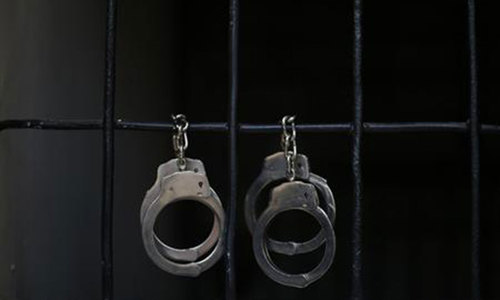ISLAMABAD: The Senate on Friday passed a bill that criminalises for the first time sexual assault against minors, child pornography and trafficking.
The amendment to the penal code, which will go into force after being ratified by the president, also raises the age of criminal responsibility from seven to 10 years of age.
Under the revised legislation, sexual assaults will now be punishable by up to seven years in prison. Previously, only rape was criminalised.
Likewise, child pornography, which was previously not mentioned in the law, will be punishable by seven years in prison and a fine of Rs0.7 million.
The country was rocked last August by a major paedophilia scandal when it was revealed that hundreds of pornographic videos of children from the village of Hussain Khanwala in Kasur district had been created and were being circulated.
Child abuse: Cruel numbers, toothless laws
About 20 arrests were made, but only the acts of rape and sodomy were punishable by law. The new amendment also criminalises child trafficking within the country.
Previously traffickers were only liable for punishment if they removed children from the country.
The legislation would help protect the children against any kind of mental and physical abuse.
The new Sections 292 A, 292 B and 292 C, 328 A, 369 A, 377 A and 377 B have been incorporated in Pakistan Panel Code, 1860, making child pornography and exposure to seduction, a punishable crime.
Take a look: Kasur scandal: 'I thought of killing myself everyday'
“This is a very important step to realise the obligations of Pakistan under the Convention on the Rights of the Child,” said Sara Coleman, chief of child protection at Unicef.
“Now we have to turn our attention to the law's implementation,” said Valerie Khan, the director of Group Development Pakistan, a local NGO which advocates legal reforms.
She also called for the “establishment of a national commission on child rights, which is essential to monitor and coordinate the implementation of the law.”
Pakistan ratified the United Nation's Convention on the Rights of the Child (UNCRC) in 1990 and is under obligation to implement its provision by harmonising polices, legislation, programmes, plans of action with it and report progress to the UN committee on the Rights of the Child (UNCRC), Geneva after every five years.
To undertake this task, existing laws are required to be harmonised with the UNCRC to effectively initiate requisite actions for meeting the standards set forth under the UNCRC.
According to a recent study from Sahil, a non-government organisation (NGO) working against child sex abuse, the total number of young boys being abused increased by 4.3 per cent in the first half of 2015 compared to the same period last year.
The report said that 178 boys aged 6 to 10 were abused compared to 150 girls of the same ages.












































